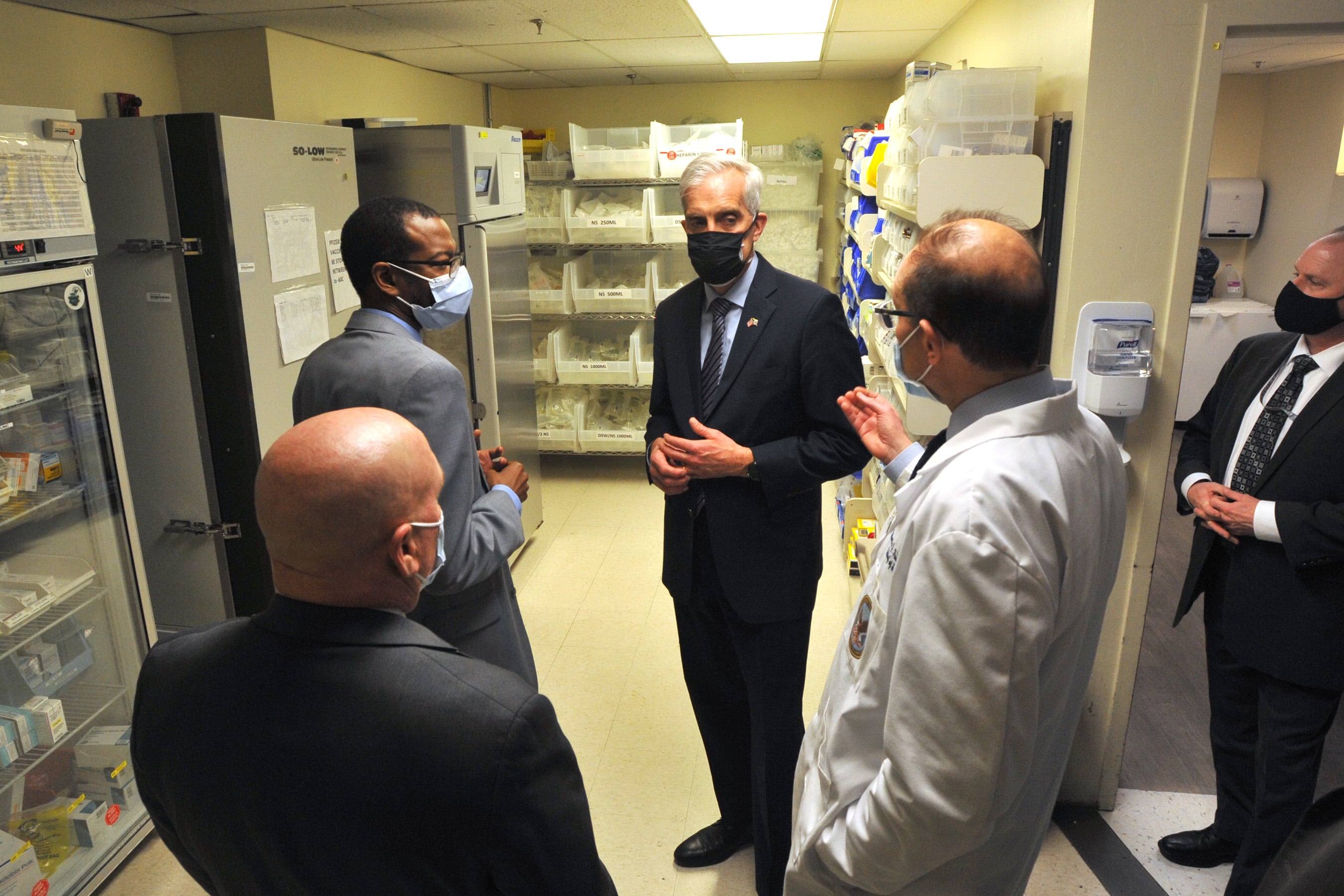The number of backlogged veterans disability claims has been cut by about 10 percent in recent weeks but likely won’t return to pre-pandemic levels until late 2022, Veterans Affairs officials acknowledged Thursday.
And they warned that number could grow again if Congress passes pending legislation granting new disability benefits to tens of thousands of veterans exposed to burn pits while serving overseas in the recent wars.
As of this week, about 191,000 disability claims were considered backlogged, meaning they have been pending for four months or more.
RELATED

That’s down from a peak of about 210,000 cases earlier this spring, but still well above the roughly 70,000 backlogged cases in early 2020, before the coronavirus pandemic began.
If their claims are eventually approved, veterans with backlogged claims will get back pay to their initial filing date. But the months-long wait for the start of those payouts can be both frustrating and financially damaging for veterans suffering from service-connected ailments.
The rise in the claims backlog stems in large part from pandemic related shutdowns which began in spring 2020 at the National Personnel Records Center. Veterans Affairs claims processors use military and personnel records from the agency to decide cases, but without staff in offices to pull the records, the new disability filings have lingered.
Earlier this year, VA officials helped vaccinate the National Archives and Records Administration workforce against coronavirus to help their offices return to normal operations. In addition, about 60 VA staffers have been temporarily assigned to the NPRC offices to help with records retrieval and digitizing.
As a result, VA records requests are now being processed on average in two or three days, faster than pre-pandemic levels, according to Kenneth Smith, assistant deputy under secretary at the Veterans Benefits Administration.
But, clearing the backlog will still take time. The department currently has a workload of about 500,000 cases, with nearly 40 percent pending for more than 125 days.
“Our workload is dynamic,” he said. “We’re hoping to keep our backlog to under 200,000 through the end of the fiscal year. And we’re hoping we can reduce it to around 100,000 by the end of fiscal 2022.”
The claims backlog drew national scrutiny in 2013, when the number of overdue claims topped 610,000 cases after a host of new Agent Orange-related illnesses were added to VA’s disability lists. The issue prompted a major overhaul and digitization of VA records, slowly driving down the case totals.
Congress is considering making a similar move in coming months, adding a host of respiratory illnesses and cancers believed connected to burn pit exposure as well as expanded benefits for other military toxic exposure cases.
Smith did not take a stance on the legislation, but cautioned that adding those claims into the system could lead to another backlog increase. In addition, VA is already dealing with about 60,000 cases undergoing a court-mandated review related to past Agent Orange presumptive illnesses.
Under the American Rescue Plan approved by Congress in March, VA was given $150 million to help digitize NPRC files to speed up future disability claims work. Smith could not give a percentage of how many records that work would cover, but noted that “we need these records in order to process the claims.”
RELATED

Earlier this week, in testimony before the House Veterans’ Affairs Committee, veterans groups called the size of the backlog worrisome for the veterans community.
“While we are pleased to see the administration’s proposed amount for [improvements at] the Veterans Benefits Administration, we are greatly concerned about the current claims backlog,” said Shane Liermann, deputy national legislative director at Disabled American Veterans.
Smith said officials are pleased with the progress in recent weeks but aware of the work still to be done.
“More work is being done,” he said. “But removing issues with the [NPRC] records will allow us to remove one external obstacle from that, and allow us to expedite the decisions.”
Leo covers Congress, Veterans Affairs and the White House for Military Times. He has covered Washington, D.C. since 2004, focusing on military personnel and veterans policies. His work has earned numerous honors, including a 2009 Polk award, a 2010 National Headliner Award, the IAVA Leadership in Journalism award and the VFW News Media award.





